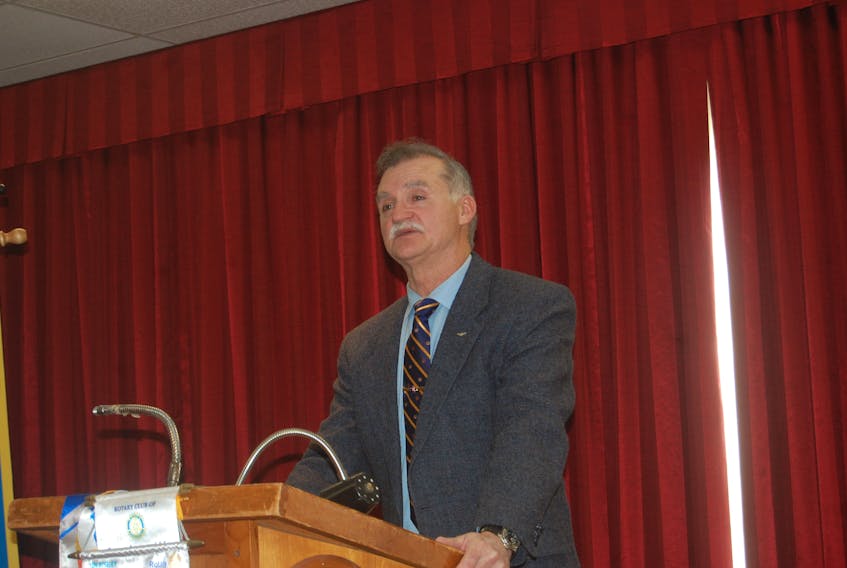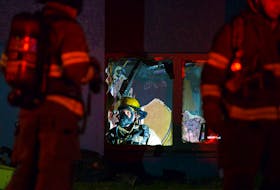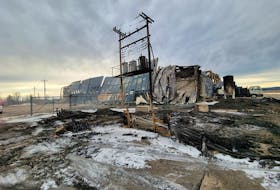Canadian Forces retired colonel Clyde Russell said the traditional blue helmet peacekeeping that Canada is known for is no longer the norm.
He told members of the Stephenville Rotary Club in an address on Wednesday at a luncheon meeting that a country must have a force that is well trained and equipped for combat to intervene anywhere.
“There’s a lot of violence out there. The day of peacekeeping is few and far between,” Russell said.
That was the takeaway from his speech centred on “Peace and Development in Our World,” which he has had lots of experience in from tours in Cyprus in 1985, Bosnia in 1995 and Afghanistan in 2005-06.
Russell said the three countries he served in had institutions with varying levels of development, all bringing different challenges.
He said after the Turkish invasion in 1974, there was a ceasefire and creation of the United Nations Buffer Zone, known as the green line, with self-governing countries emerging — the Republic of Cyprus and Turkish Republic of Northern Cyprus.
Russell said for him in 1985, Cyprus was a good tour on an island with beautiful beaches and was pretty low key.
Bosnia was different, as when he went there in 1995, it was essentially in the middle of the Bosnian civil war, which took place from 1992 to 1999.
It was during that war that the world saw the emergence of the term ethnic cleansing, with 140,000 deaths and numerous war crimes, including crimes against humanity.
Russell said while he was there for peacekeeping, the Canadian military’s role had changed to keep the peace, but being prepared to fight.
The attacks of 9-11 and the subsequent U.S.-led coalition resulted in Canada being involved in Afghanistan and Russell’s deployment to Kandahar in December 2005.
“Afghanistan was about building institutions, as it’s illiterate, it’s poor and its government has shallow, tentative control,” he said.
The mission of the Canadian military was to build the army and police, while being aware of what was happening with activity in the area.
Russell had high praise for non-governmental organizations in the countries he worked, talking about how brave they were to be in these dangerous places, often with no protection.
Instruments of national power:
Diplomatic
Information
A military loyal and ethical serving the government and the people
Economic drivers to provide prosperity for the population
Financial — a credible banking system
Intelligence
Law Enforcement — critical for the security of the population
A liberal education system
No development without security
Improving governance and building institutions where there are none
Source: retired colonel Clyde Russell









